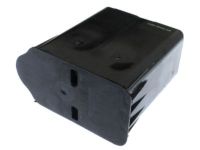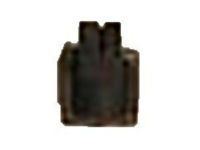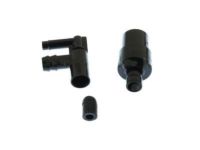

Why choose FordPartsGiant
- Devoted Service
At FordPartsGiant.com, we strive to make customer satisfaction our #1 goal by providing dedicated customer service. Our core values of success continue to demonstrate our loyalty by building dedicated relationships with all of our current and future customers. We are always ready to assist you with the slightest detail about your vehicle's parts and accessories.
- Reasonable Prices
We are the best online source for discounted prices on factory auto parts and accessories. Not everyone has the money to buy their vehicle quality parts, here at FordPartsGiant.com we make it economical to buy the best parts without sacrificing the quality or hurting your wallet.
- Swift Delivery
FordPartsGiant.com has centrally located distribution centers all across the United States. This gives you quick access to our discounted Mercury Cougar parts when you need them. We offer our customers the convenience of having parts delivered straight to their front door. We are committed to having your vehicle up and running in just a couple of days.
Popular Genuine Mercury Cougar Parts
- Engine Parts View More >
- Lamps & Wiring Parts View More >
- Wheels & Brakes Parts View More >
- Fuel System & Manifolds Parts View More >
- Speedometer, Bumpers, Mirrors & Wipers Parts View More >
- Radiator & Grill Parts View More >
- Front Suspension & Steering Parts View More >
- Transmission Parts View More >
- Frame, Exhaust System, Spring & Stabilizer Parts View More >
- Fenders & Hood Parts View More >
Shop Genuine Mercury Cougar Parts with FordPartsGiant.com
The Mercury Cougar, a best-selling model from the now-defunct Mercury division of the Ford Motor Company, enjoyed a 34-year production run with a whopping 2,972,784 units sold. The model, second in sales only to the Grand Marquis, was central to Mercury's "cat brand" marketing strategy in the 1970s and 80s. Initially designed as a more luxurious and better-equipped alternative to the Mustang but still more performance-focused than the Thunderbird, the Cougar hit the market on September 30, 1966, exceeding sales forecasts and accounting for nearly 40% of Lincoln-Mercury's total sales in 1967. Initially offered only as a two-door hardtop car, the Cougar underwent several modifications over the years. Its 289 engine was replaced by a V8 in 1968, and a mid-year redesign in 1969 introduced a "bottle car" style. Later generations saw the Cougar downsized and set on a compact Fox chassis, and it was offered only as a two-door coupe. Despite changes, the Cougar's success led to significant shifts in Mercury's lineup, with models like the mid-size Cyclone being replaced by the Cougar, and the smaller imported Capri eventually replacing the Cougar as the compact sports car in the range.
The Mercury Cougar, spanning various models from its inception in 1967, has faced a few persistent issues over the years. One such prevalent problem, especially with the 2000 model, is the consistent alternator failure. Distinguishing between battery and alternator issues can be complex. Initial troubleshooting steps involve inspecting the battery, particularly during colder conditions, and observing the dashboard battery light when the car is off. A dim or flickering light may indicate unwanted battery drainage. Ensuring all accessories are off and checking for corrosion followed by measuring the battery voltage, which should ideally be around 12.6 volts when off, can offer insights. Readings above 15 volts or below 13 volts after starting the engine suggest issues with the voltage regulator, wiring, or the alternator. A practical alternator test involves running the car while disconnecting the positive terminal of the battery; if the vehicle stops, it's indicative of alternator issues. Interior lights that shine brightly initially but dim over time or change intensity with acceleration and deceleration further hint at alternator challenges. A comprehensive evaluation by professionals is advised for precise diagnosis, and in certain cases, even after changing various components, the alternator problem could be due to a damaged fusible link, which can be confirmed using a jumper wire and subsequently replaced. The 1999 Mercury Cougar brought to light another significant concern: transmission failure. Symptoms include delayed shifting, troubled acceleration, and peculiar sounds or odors. For optimal performance, regular wear and tear checks are crucial, emphasizing the timely replacement of transmission and differential fluids using recommended products. Activities like frequent braking or exceeding towing limits can strain the transmission, so it's recommended to inspect and potentially change the transmission fluid between 30,000 and 60,000 miles, aligning with specific usage and manufacturer guidelines.
If you want to save money in the long run on maintenance and repairs, you should choose OEM products because they're of the highest level of durability. If you are in demand for superior quality and affordable OEM Mercury Cougar parts, including Air Conditioner, Radios & Shock Absorbers, Body Sides & Quarter, then shop with us! We own a wide range of the reduced-priced genuine Mercury Cougar parts, such as Rear Axle & Drive Shaft, Body Front & Floor. You can purchase in confidence as all parts, like Roof, Back, Luggage Compartment & Tailgate come with a manufacturer's warranty. Any issues with our products? No need to worry as we have a hassle-free return policy to guide you every step of the way.
Mercury Cougar Parts Questions & Answers
- Q: What is the purpose of this system and how to check and replace Purge Valve and Canister on Mercury Cougar?A: This system prevents hydrocarbons from polluting the atmosphere by storing fuel vapor from the tank. It includes a charcoal canister, purge control solenoid, connecting lines, fuel cap, and fuel injection system. Vapor from the tank is stored in a charcoal canister located near the front wheel well until the engine starts. The canister connects to a purge solenoid, which opens at engine start to draw vapor into the air cleaner. The canister and solenoid should be checked for damage or malfunction and replaced if necessary. To replace the canister, remove the mounting bolt, lower the canister, detach the hose, and remove the canister. For other components, use the VECI label schematic to locate and replace them. Installation is the reverse of removal.
- Q: How do you remove the coil on Mercury Cougar?A: To remove the coil on non-supercharged models, disconnect the battery's negative terminal cable, detach the coil's electrical connectors, and remove the coil and bracket bolts. Reverse these steps for installation. For supercharged models, disconnect the battery's negative terminal cable, disconnect the coil pack's electrical connector, and remove the spark plug wires and the coil pack screws. Reinstall by reversing these steps.
- Q: What is the purpose and components of the Positive Crankcase Ventilation (PCV) system and PCV Valve on Mercury Cougar?A: The Positive Crankcase Ventilation (PCV) system cycles crankcase vapors back through the engine, where they are burned. The valve regulates the amount of ventilating air and blow-by gas to the intake manifold and prevents backfire from traveling into the crankcase. The PCV system consists of a replaceable PCV valve, a crankcase ventilation filter, and connecting hoses. The air source for the crankcase ventilation system is in the air cleaner. Air passes through a hose connected to the air cleaner housing and to the oil filler cap. From the oil filler cap, the air flows into the valve cover and the crankcase, from which it circulates up into another section of the valve cover and finally enters a spring-loaded regulator valve (PCV valve) that controls the amount of flow as operating conditions vary. The vapors are routed to the intake manifold through the crankcase vent hose tube and fittings. This process goes on continuously while the engine is running. Checking procedures for the PCV system components are included, and component replacement involves simply installing a new valve or hose in place of the one removed during the checking procedure.



















































